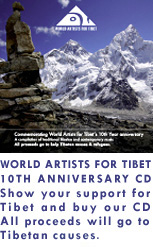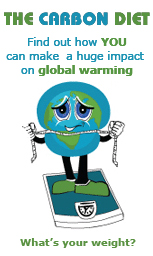Ask Ronit
 I Like Your Ponytail, A Story About Commitment
I Like Your Ponytail, A Story About Commitment
“I like your ponytail.” I said in a playful manner. “Ponytail?” he repeated in a thick French accent. There and then began the most extraordinary odyssey of my life.…
Avoid 90% of the Pesticides in Food, by Avoiding 12 Foods
Why should you care about pesticides in your food?For starters there may be as many as twenty pesticides on a single piece of fruit you eat.…
Dear Mrs. Black,It was January 1967 when this 11 year-old, frightened, little Israeli girl walked into your classroom for the first time. I had only arrived in the country two weeks before.…
With sex all around us, oozing out of our televisions, theaters, magazines, fashion, on the streets, one would think we are the most sexually informed, open and comfortable nation on the planet.”…
I’m sure by now you all have noticed the ongoing meltdown in the mortgage industry. The cause of this whole mess is a little bit complicated, rooted in both the structure of the mortgage industry, and human nature. I’ll try to explain both factors here in layman’s terms.…
Breaking old habits; Creating new Ones
We are mostly habitual beings. Webster defines habit as an acquired mode of behavior that has become nearly or completely involuntary.…
Navigation
Inquiry
Study Suggests That, Unlike in the ’70s, Energy Lessons Will Last
By NY Times
Most of us remember the never ending lines at the gas stations in the 70's. The outcry by the public for alternative sources of energy Then just as quickly, all is forgotten, as lines disappeared and prices for gas dropped. We hear the same clamour today, yet according to The Cambridge Energy Research Associates, unlike the 70's, this time it will not go away. The difference today is that global warming is seen as a threat to political security, as well as the environment. Especially with the growing economies of China and India, cheap and reusable sources of energy are vital.
Crazy innovations might just be crazy enough to work
Ever think of using kites to help haul a 10,000 ton freighters? How about using sun-baked roads to heat houses and offices or maybe using the body heat of daily commuters to warm an office building?
That is the kind of drive to innovate and succeed that spurs an economy to revitalize, and spurs a nation onwards towards excellence. I am just sorry that it was so long in coming and sorrier that there is still so little of it here in America. read more »
City Council Passes Bill for Recycling of Plastic Bags
By NY Times
It is estimated that 86 billion plastic bags are used by Americans each year. According to environmental organizations these bags end up entangled in the stomachs of whales and sea turtles or buried in landfills where they last for 1,000 years. New York City council has just enacted the most broad measure to minimize the environmental impact of these bags. read more »
Digital Tools Help Users Save Energy
By NY Times
How would people react if given the means to closely monitor and adjust their electricity? The Pacific Northwest National Laboratory of the Energy Department suggested that if consumers were given digital tools to set temperatures and price preferences, the peak loads on utility grids could save up to 15% a year. The results of the experiment even surprised the Energy Department. How did the consumers react when given the choice between comfort and cost? How much could this save over a long period of time? read more »
Judge Imposes Stricter Rules on Navy to Protect Marine Life.
By NY Times
What is more important national security or protecting marine life? That seems to be the conflict between the Navy and environmentalists over the naval use of sonar off the California coast. Whales and dolphins exhibit disoriented and frantic behaviors during the navy's sonar training exercises. Judge Florence-Marie Cooper ordered the Navy to implement strict new safeguard to protect marine mammals by limiting their exercises to 12 nautical miles from shore. The navy is considering an appeal. read more »

 My Hero
My Hero We Are Sexual Beings
We Are Sexual Beings The Banking Implosion
The Banking Implosion









